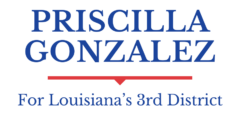The Access to Baby Formula Act (H.R. 7791) seeks to alleviate the nation’s infant formula shortages and guarantee that families—especially those with limited financial resources—have steady access to this vital nutrient. Important elements of the bill consist of:
Addressing Supply Chain Issues:
-
- Emergency Powers: Grants the federal government emergency authority to take action in response to baby formula shortages, ensuring a rapid response to supply chain disruptions.
- Support for Low-Income Families:
- WIC Program Flexibility: Provides the Special Supplemental Nutrition Program for Women, Infants, and Children (WIC) with greater flexibility to respond to shortages, including the ability to source formula from a wider range of suppliers.
- Stockpiling and Distribution: Authorizes the government to increase stockpiles and improve the distribution of baby formula to prevent future shortages.
- Coordination and Oversight:
- Interagency Coordination: Enhances coordination between federal agencies to address supply chain issues and improve the overall availability of baby formula.
- Reporting Requirements: Mandates regular reporting on baby formula supply levels and the effectiveness of measures taken to address shortages.
Impact of Voting Against the Bill
Voting against the Access to Baby Formula Act, as Clay Higgins did, can be seen as highly detrimental for several reasons:
- Infant Health and Nutrition:
- Critical Needs: Baby formula is a critical source of nutrition for infants, especially those who are not breastfed. By voting against the bill, Higgins opposes measures that ensure a reliable supply of this essential product, potentially putting infants at risk of malnutrition and related health issues.
- Support for Vulnerable Families:
- Low-Income Families: The bill provides vital support to low-income families who rely on the WIC program to obtain baby formula. Voting against it means rejecting enhanced flexibility and resources that help these families during shortages, exacerbating food insecurity and stress.
- Emergency Preparedness:
- Supply Chain Stability: The bill aims to improve the resilience of the baby formula supply chain and prevent future shortages. Opposing this measure undermines efforts to ensure a stable and reliable supply, leaving the system vulnerable to disruptions.
- Government Response:
- Rapid Action: The bill grants the federal government the ability to act swiftly in response to baby formula shortages. By voting against it, Higgins limits the government’s capacity to address emergencies efficiently, potentially prolonging shortages and their impacts on families.
By voting against the Access to Baby Formula Act, Clay Higgins expressed opposition to important policies intended to protect newborns’ nutrition and health, assist low-income families, and strengthen the baby formula supply chain’s resilience. Wide-ranging detrimental effects may result from this choice, especially for underprivileged groups whose children’s health depends on regular access to infant formula.
